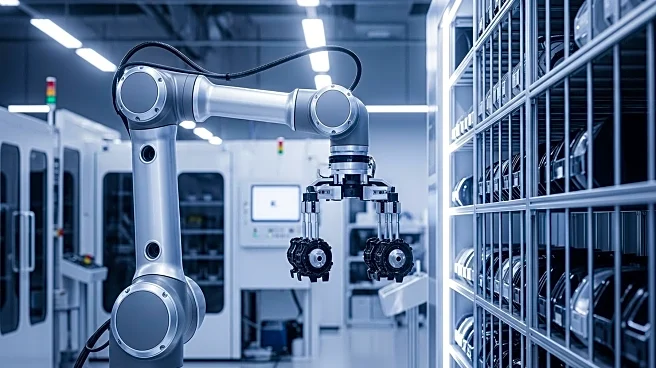What's Happening?
Thansen, a major retailer of car parts and bike components, has launched what is described as the world's largest self-service in-store AutoStore system at its new location in Sofiemyr, Norway. This system, developed in collaboration with Element Logic, integrates automation directly into the store environment, allowing customers to place orders in-store and receive goods within minutes. The system aims to enhance customer experience by offering a larger product range and faster service, combining the efficiency of e-commerce with the immediacy of physical retail. The installation is the first of its size in the Nordics, demonstrating how retailers can connect store operations with automated fulfillment in real-time.
Why It's Important?
The introduction of the AutoStore system represents a significant advancement in retail technology, potentially transforming the shopping experience by increasing efficiency and product availability. This development could set a precedent for other retailers looking to integrate automation into their operations, thereby enhancing customer satisfaction and operational efficiency. The system's scalability and adaptability to changing market demands provide Thansen with a resilient business model, which could influence the broader retail industry in adopting similar technologies to meet evolving consumer expectations.
What's Next?
Thansen's implementation of the AutoStore system may prompt other retailers in the Nordics and beyond to consider similar automation solutions to enhance their service offerings. As the system is designed for flexibility and growth, Thansen can expand or adjust its operations as customer expectations evolve. This could lead to further innovations in retail technology, with potential collaborations between technology providers and retailers to develop more advanced systems.
Beyond the Headlines
The integration of automation into retail environments raises questions about the future role of human employees in stores. While automation can improve efficiency, it may also lead to changes in employment patterns, requiring workers to adapt to new roles that focus on customer service and system management. Additionally, the use of such technology could influence consumer behavior, as shoppers become accustomed to faster and more efficient service.










